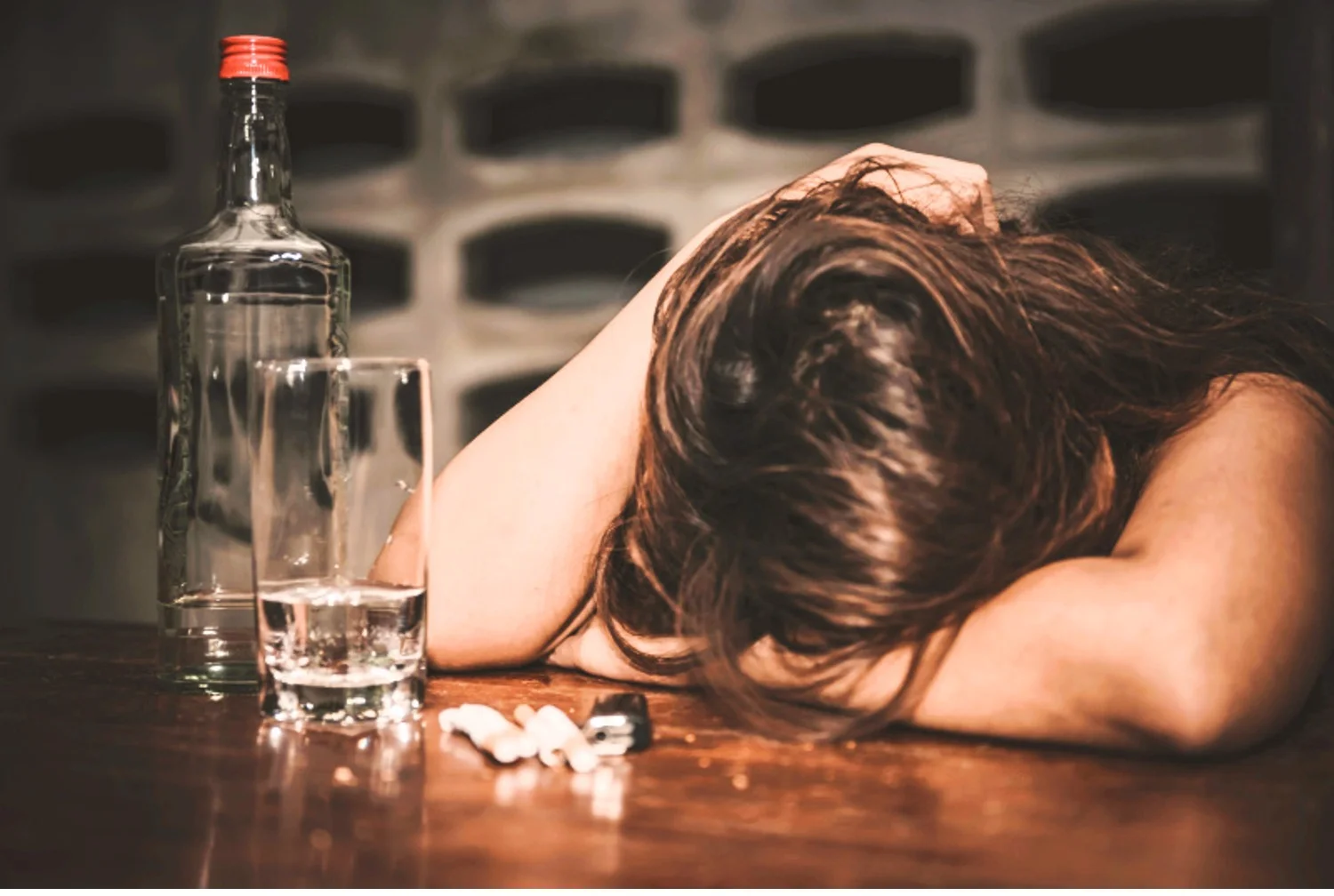Exploring the Complex Relationship Between Bipolar Disorder and Addiction
One of the most common and serious co-occurring disorders is bipolar disorder and addiction. Read on to see how the connection between addiction and bipolar disorder works and what treatment options are available.
Understanding Bipolar Disorder
Bipolar disorder is a mental health condition, specifically a type of mood disorder. Bipolar disorder, formerly known as manic depression or bipolar depression, is typified by intense shifts in mood, energy, and activity levels.
Bipolar disorder is a very complex condition, and the causes of the disease are not yet fully understood. However, research suggests that bipolar disorder is the result of a combination of factors, including:
- Genetics
- Life history and experiences
- Neurochemical imbalances
- Brain structure and function
- Neuroendocrine factors
- Environmental triggers
- Substance use
- Sleep disruptions
- Hormonal factors
- Medical health and pre-existing conditions
It is estimated that approximately 2.6% of the U.S. population— or approximately 5.7 million Americans—suffers from bipolar disorder.
Symptoms of Bipolar Disorder

There are three types of bipolar disorder: bipolar I disorder, bipolar II disorder, and cyclothymia, which are primarily distinguished by the severity of their symptoms. All three conditions cause alternating periods of high energy/mood and low energy/mood.
Bipolar I is defined by the presence of manic episodes, or periods of hyper-elevated mood where the patient experiences psychosis.
Bipolar II is defined by hypomanic episodes, which are similar to the manic episodes experienced with bipolar I but do not rise to the severity of psychosis.
Cyclothymia is defined by mood swings that are serious but not as severe as the highs or lows experienced with bipolar I or II.
It is important to remember that every case of bipolar is unique, as are the symptoms that will appear. However, there are certain symptoms most sufferers of bipolar will experience.
Common and serious symptoms of manic and hypomanic episodes include:
- Elevated mood
- Increased energy
- Decreased need for sleep
- Racing thoughts
- Difficulty concentrating
- Increased talkativeness
- Impulsivity and reduced judgment
- Lack of care about consequences
- Grandiosity
Common and serious symptoms limited to manic episodes include:
- Psychosis
- Difficulty distinguishing reality
- Mental fixations
Common and serious symptoms of depressive episodes include:
- Low mood
- Loss of interest in previously enjoyed activities
- Fatigue
- Changes in appetite
- Sleep disturbances
- Difficulty concentrating
- Feelings of sadness, hopelessness, or worthlessness
- Physical restlessness
- Slowed movements or speech
- Suicidal thoughts or attempts
If you or a loved one have talked or thought about suicide, help is available. Call or text 988 to reach the 24/7, toll-free suicide hotline.
Understanding Addiction
Addiction is a disease with both medical and psychiatric components defined by a compulsion to use a substance or engage in a behavior despite repeated negative consequences.
If the focus of an addiction is a substance, like alcohol or opiates, it is known as a substance use disorder. If the focus of the addiction is a behavior, like gambling or watching pornography, it is known as a behavioral addiction.
Most addictions develop when an individual experiences a rush or relief from using a substance or engaging in a behavior. As their body builds a tolerance, they need more of the substance or behavior to feel the same effects.
Over time, the body will become so accustomed to the effects of the drug or behavior that it will no longer be able to function “normally” without them. If the person stops or reduces the substance or behavior, they will experience a collection of unpleasant withdrawal symptoms. This is known as dependence.
Due to tolerance and dependence, the individual uses increasing amounts of the substance or behavior. Eventually, their use has serious negative impacts on their life, and they have developed a full-blown addiction.
Bipolar as a Risk Factor for Addiction

Bipolar disorder and addiction have a very close relationship. Studies have found that:
- Between 40% and 60% of individuals with bipolar I or bipolar II have an active, diagnosable substance use disorder at any time.
- Up to 80% of bipolar individuals will have a diagnosable substance use disorder at some point in their lives.
Bipolar drives sufferers to misuse substances in a number of ways, but the two most important are self-medication and impulsivity.
The symptoms of bipolar can be very difficult for sufferers to deal with, especially if they have not been properly diagnosed.
Psychiatric mental health nurse practitioner (PMHNP) Valerie Puffenberger says, “Individuals with bipolar disorder may use substances to self-medicate during depressive or manic episodes in an attempt to stabilize their moods. The impulsive nature of manic episodes can also increase the likelihood of engaging in risky behaviors, such as substance use.”
The addictive substance or behavior temporarily alleviates symptoms or provides some other relief. This motivates the person to use more and more, especially as tolerance develops.
Bipolar disorder makes sufferers more impulsive, and it also makes them disregard or ignore the potential consequences of their actions. The disease can also cause feelings of grandiosity, which may make sufferers believe that they can handle extreme amounts of a substance.
All this combines to make bipolar sufferers more likely to experiment with and become addicted to a wide variety of addictive substances.
The Impact of Addiction on Bipolar Disorder
Although substance use can temporarily relieve bipolar symptoms, it makes them significantly worse over time.
Many substances cause manic and depressive symptoms. For example, alcohol can trigger both mania and depression—and it is, by far, the most misused substance among bipolar sufferers.
Substance use also interferes with mood stabilization efforts. Not only does addiction make the moods of bipolar sufferers more variable and severe, but it can also derail treatment and self-improvement efforts. For example, alcohol prevents many mood-regulating medications from working the way they are meant to.
One of the biggest obstacles in treating bipolar disorder and addiction is that substance use emulates bipolar symptoms, making it difficult to distinguish which symptoms are caused by which disorder.
Integrated Treatment Approaches for Bipolar Disorder and Addiction

Because bipolar and addiction can both cause and worsen each other, they often trap victims in a downward spiral: Continued use of the addictive substance or behavior causes worse bipolar symptoms, which motivates greater use, which causes worse symptoms.
This close relationship means that both conditions need to be treated at the same time. If only one is treated, there is a very high risk of relapse.
The most effective treatments for bipolar disorder and addiction are dual diagnosis programs.
Dual diagnosis programs specialize in treating co-occurring substance use and mental health disorders and can be either:
- Inpatient: Require patients to reside at a facility where they receive treatment. They fully separate people from the triggers associated with their bipolar disorder and/or addiction. Generally, they are more expensive than outpatient programs but also more effective.
- Outpatient: Require patients to attend treatment sessions for several hours a day, several days a week, while residing elsewhere. Provide more flexibility so patients can continue to meet daily obligations. Generally, they are less expensive than inpatient programs but also less effective.
Treatment approaches that couple mood stabilization theory and addiction treatment can tackle bipolar and substance use at the same time.
Mood stabilization therapy helps patients to get to know themselves and their symptoms better. By becoming more self-aware and cognizant of triggers, patients can better control their emotions, reactions, and behavior. This, in turn, dramatically improves their lives.
Addiction treatment helps bipolar patients get through withdrawal, achieve lasting sobriety, and develop healthy coping mechanisms. The goal of addiction treatment is not just to temporarily stop substance use but instead to set the patient up for a lifetime free of drugs and alcohol.
Bipolar Disorder and Addiction Recovery
Relapse is a common occurrence, especially for those in recovery from addiction and bipolar disorder. However, there are many strategies that can help prevent relapse.
Puffenberger provides the following advice to help those in recovery prevent relapse into bipolar and addiction:
- It is crucial to prioritize ongoing treatment and support. Regular therapy sessions, including medication management and psychotherapy, can help manage bipolar symptoms and address addictive behaviors.
- Develop a daily routine and maintain a stable sleep schedule.
- Find ways to reduce and manage stress in your life—everyone is different, so see what works for you.
- Build a support network of understanding individuals, like therapists, support groups, and loved ones who can provide ongoing support and accountability.
Find Balance: Professional Help for Bipolar Disorder and Addiction
If you or a loved one is suffering from bipolar disorder and addiction, it may seem as if your life has become a downward spiral from which there is no escape. However, nothing could be further from the truth. There are treatment professionals, like those at Legacy Healing Center, who have dedicated their lives to helping people like you reclaim their lives.
We use a three-pronged approach to treat patients with addiction and bipolar disorder. Our method includes:
- The right psychotropic medications
- Evidence-based psychotherapy
- Peer support
The staff at Legacy is waiting to answer your questions about what bipolar and addiction treatment options are available to you or your loved one. All you have to do is call 888-534-2295 to speak with a treatment staff member.
Bipolar Disorder and Addiction FAQs
How common is it for individuals with bipolar disorder to develop addiction?
It is extremely common for individuals with bipolar disorder to develop addiction. Even the most optimistic estimates claim that most people with bipolar will develop a diagnosable substance use disorder at some point in their lives. Some studies indicate that 80% or more of bipolar sufferers will have a substance-based or behavioral addiction at some point.
What are the symptoms of bipolar disorder and addiction?
Every case of bipolar disorder and every addiction is unique. That also means that the symptoms of each case will vary tremendously from person to person. However, some of the most common and serious symptoms of co-occurring bipolar and addiction include:
- Intense mood swings that are disproportionate to any stimuli
- Impulsivity and engagement in risky or dangerous behaviors
- Increased substance use
- Self-medication
- Impaired judgment and disregard for consequences of action
- Mixing medications, drugs, and alcohol
- Interference with treatment
- Isolation
- Increased risk of self-harm or suicide
- Worsening symptoms of both bipolar and addiction
- A downward cycle of relapse
- Tolerance and withdrawal symptoms
- Neglect of personal, professional, familial, financial, or legal obligations
What treatment options are available for individuals with bipolar disorder and addiction?
A wide variety of treatment options are available for individuals with bipolar disorder and addiction. The most effective combine medications that help patients get through withdrawal symptoms and regulate moods with therapies that help patients identify triggers and change their behavior.
If you have more questions about what treatment options are available to you, call 888-534-2295 today to speak with a treatment staff member at Legacy Healing Center.
Can bipolar disorder and addiction be effectively managed?
Although neither bipolar disorder nor addiction are curable, both can be effectively managed with medication, therapy, and lifestyle changes. With the right treatment and recovery plan in place, the vast majority of bipolar and addiction sufferers can lead happy, productive lives.
Link to ‘Bipolar Disorder Treatment’ article when live [TB1]
Sources
- National Institute of Mental Health. (2023). Bipolar Disorder.
- Substance Abuse and Mental Health Services Administration. (2023). Bipolar Disorder.
- American Psychiatric Association. (2021). What Are Bipolar Disorders?
- Depression and Bipolar Support Alliance. (n.d.). Bipolar Disorder Statistics.
- National Library of Medicine. (2007). The Prevalence and Significance of Substance Use Disorders in Bipolar Type I and II Disorder.






